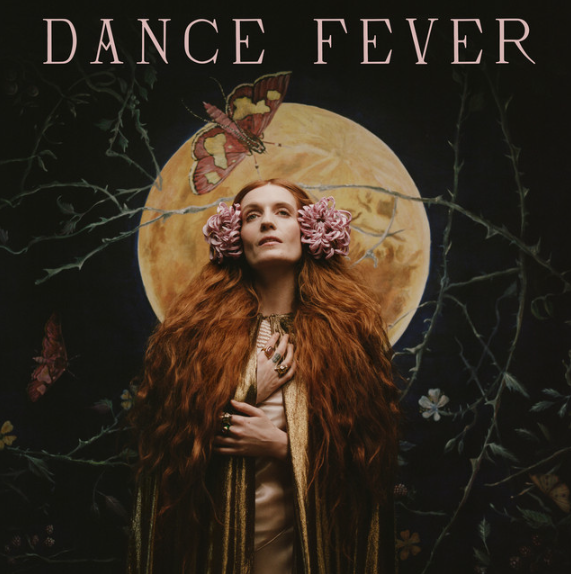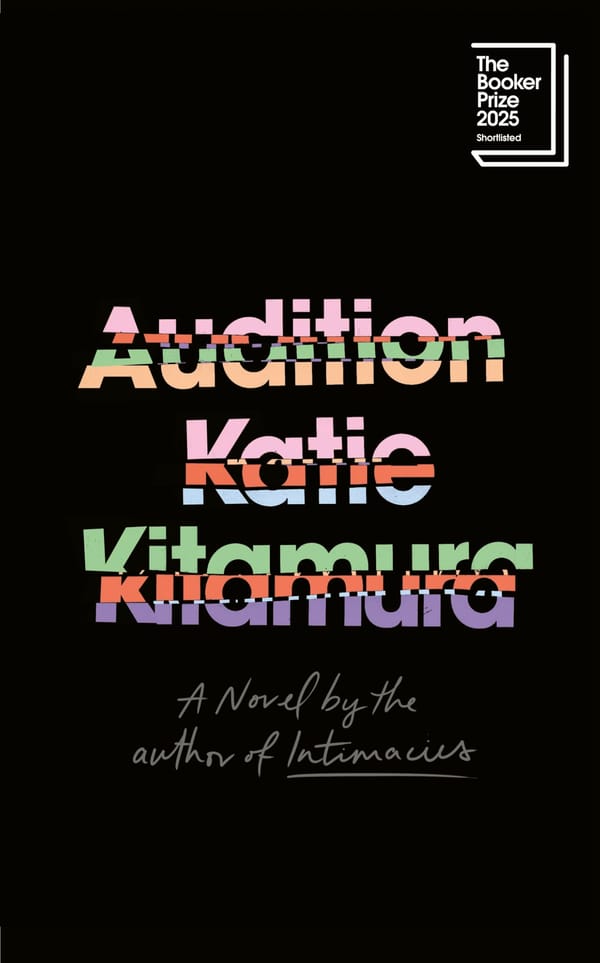How to Run a Temperature with Florence + the Machine
Florence + the Machine release their long-awaited album, Dance Fever.

Kendrick Lamar dropping his long-awaited record very much rendered a lot of other things that happened on May 13th insignificant and comparably forgettable. While this truly was one of the more memorable moments in his discography, a few projects have unfortunately flown under the radar because of this release. In fact, one of the bands that always flows under my radar has rolled out a full length LP – no one other than Florence + The Machine, the band that normally occupies a minuscule portion of my RAM due to, well, for the most part just being fairly meh. Admittedly, I always found Welch’s vocals to be highly impressive, but all of the band’s songs have sort of melded into one big ‘You’ve Got the Love’ kind of track inside my brain. Still, what I have discovered in Dance Fever has exceeded my expectations in every possible way.
The production on this record is quite minimalistic, but nonetheless potent and elegant, with an almost medieval quality to it. On top of this, Welch’s theatrical vocals take the listening experience to a whole new level. The first teaser ‘King’ is a true anthem, describing Welch’s struggle between following her passions and the expectations society places on her. She starts off the song depicting a conversation about having children with her partner over pounding drums, a decision that all too often requires women to make career sacrifices in a patriarchal setting. Nonetheless, she shouts a resounding “no” at this expectation with the powerful, “I am no mother, I am no bride, I am king”. The song gradually devolves into unpredictability, making this verse become even more hard hitting, with the roaring scream at the end finishing the track on a perfect note. Such a sentiment is nonetheless contrasted with her internal conflict over the same possibility, making it read more as an angry reaction to the world that places that dilemma in front of her in the first place, whereas men remain entirely spared of that struggle. Lyrically, ‘King’ is by far the strongest cut on the record and is a very fitting opener, as Dance Fever is, more than anything else, an ode to Welch’s craft, as well as an ode to music itself, portraying it as her personal therapy, whatever the anxieties in question may be. ‘Free’ depicts Welch’s mental health demons as “picking her up and putting her down” repeatedly throughout the day, with her only solace being this compulsion to “keep singing”, to the point where she wonders whether she should “be medicated”. In addition to the pressures of a patriarchal society, the amazing ‘Dream Girl Evil’ depicts another fear Welch experiences in face of broader expectations. Sonically, this cut is definitely a huge highlight, with Welch’s vocals being truly outstanding, filling you with incredible energy and euphoria. Throughout the track, she angrily rejects the notion of being some sort of “angel”, preferring the world to appreciate her dark, imperfect side rather than some fabricated appearance of perfection.
One big over-arching theme on Dance Fever is how the pandemic has impacted Welch’s insatiable desire to create, dance and perform. The third teaser, ‘My Love’ is not too lyrically ambitious, with common tropes like lack of inspiration and pandemic-induced writer’s blocks. Nonetheless, it is one of the biggest bangers the band has rolled out in a long time, with perhaps the most recognisable, Florence + The Machine sound out of all the tracks on the record. House-y beats, synth-y strings and angelic vocals are all there to make this song a breathtaking experience, exemplifying the title “Dance Fever” in the best way possible. In ‘Cassandra’, she sings about her artistic struggles further, employing the character of Cassandra – the princess of Troy who was gifted with the ability of prophecy, but cursed by Apollo for not wishing to disclose his future to her, resulting in nobody ever believing her again. The mythological metaphor is an interesting way to voice a struggle many artists have encountered during the pandemic, lacking an audience to showcase their art to and share their emotions with. The epic “Can you see me, I cannot see you” feels like it is being delivered to a huge, empty concert hall, with Welch singing her heart out to nobody. This yearning for live performance is even more explicit on the track ‘Girls Against God’, where she wishes to battle God for inflicting this punishment on her. Still, this remains one of the less memorable cuts given the fairly bland production. ‘Daffodil’ is another track that reads as a more general yearning for a return to a pre-COVID era. The notion of “letting the helpless optimism of spring” enter Welch’s mind is contrasted with the chorus simply going ‘Daffodil’ over and over again over a mindlessly monotonous, but nonetheless extremely hard-hitting beat that feels like it has a life of its own, thumping independently of the lyrics, while still pushing you towards a dance-y mood. In some ways, this juxtaposition reminds me of how little sync there was behind the expected flow of one’s life and the enforced routine of the pandemic.
On other tracks, the minimalistic production did not work as well as it did on tracks like ‘King’, for instance, in spite of Welch’s consistently amazing vocals, examples being ‘Back in Town’ and ‘Heaven is Here’. The latter track, though vocally exciting at times, does eventually become dull, as it feels like it could have explored the vocal experimentation a lot more and possibly lead the track towards a more exciting finish. Still, any residual boredom quickly evaporates as my definite highlight of the record begins to play – ‘Choreomania’, a song named after the phenomenon of quite literally uncontrollably dancing until complete exhaustion. The setting that comes to my head as the bubbling beat begins is that of light rain pouring down on me at 5 AM while I indulge in my thoughts and struggles, some of which are entirely inconsequential and over-romanticised (“And I am freaking out in the middle of the street/With the complete conviction of someone who has never had anything actually really bad happen to them/ But I am committed, now, to the feeling”). Still, the rising tempo has an almost hopeful feel to it. The song evokes sadness in me, coupled with a strange form of almost trance-like happiness, caused by the sheer joy of existence. For a minute, this track invites you to forget about your worries and drown in the beauty of the moment in front of you, while also sending you in a meta-introspective state that feels weirdly enjoyable.
Overall, Dance Fever definitely lives up to its name – it is an incredibly cathartic and euphoric journey through emotional struggle, told through the recurring motif of “dancing” your pain a way. Though the pandemic-related tropes do hit with lower potency that they used to given their prevalence across the board, I do think that Florence + The Machine give a sufficiently versatile and creative spin on them. Most of all, however, this album is a true demonstration of Welch’s anthemic vocal ability, with tracks that are guaranteed to stick around with you for a long time.









